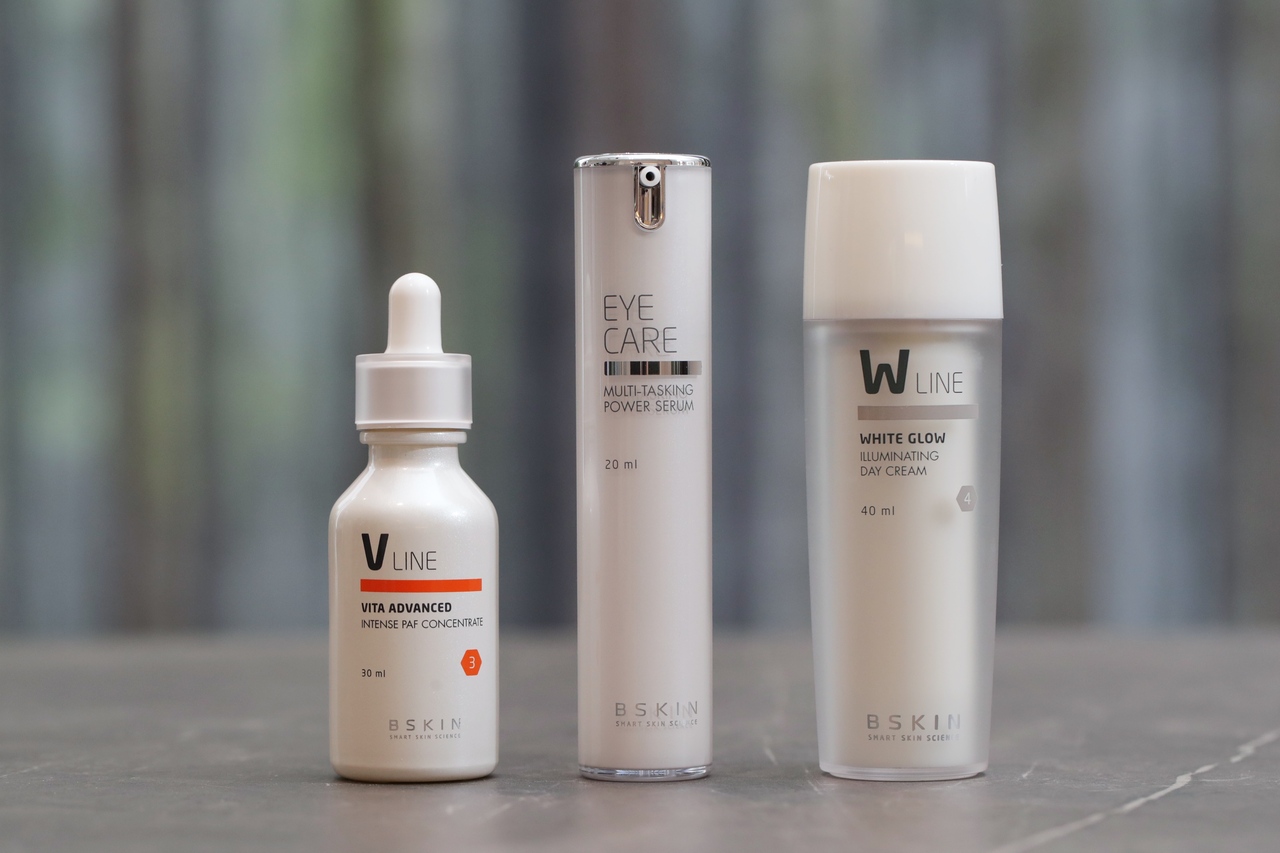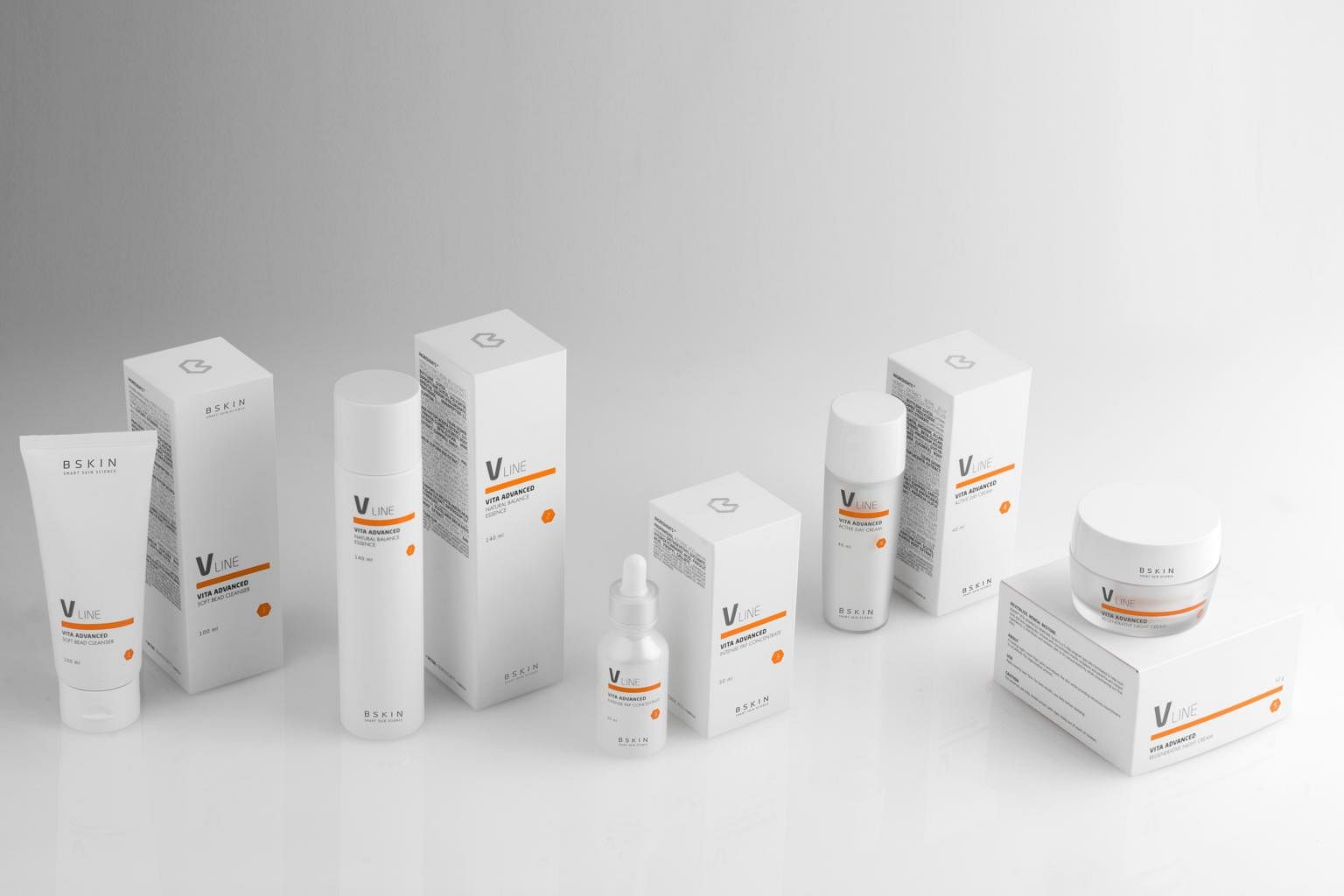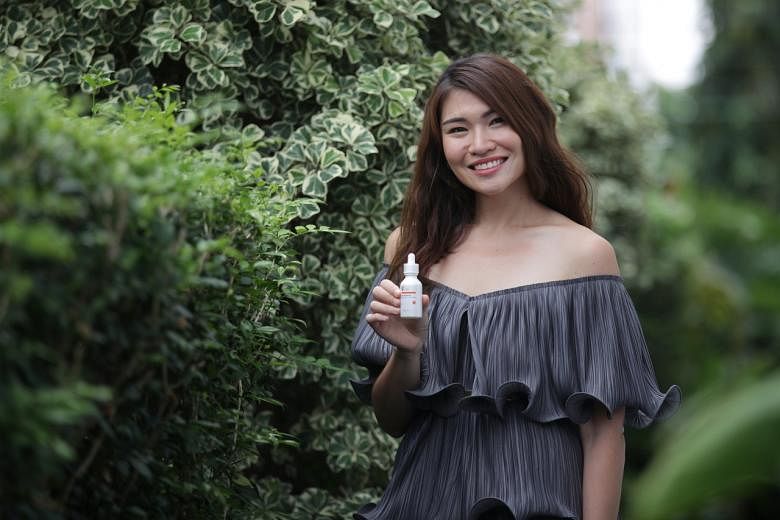SINGAPORE - Ms Chia Su-Mae takes "home-grown" quite literally.
During the circuit breaker, the founder of local skincare label Bskin started experimenting with growing herbs and other edibles in her garden.
Her herbs died but the kangkong flourished. Her experiment snowballed and she now has more than 10 types of vegetables growing in her mini farm - along with a flock of nine chickens and a more recently purchased baby duck.
"I find it very relaxing. Every morning I wake up, feed the duck, check on the chickens, collect eggs and harvest some vegetables," says Ms Chia, 33. "It takes you far away from work life, especially with working from home."
Her rustic lifestyle and love of nature is reflected in her skincare brand too. Bskin (which stands for Balance of Science, Knowledge, Innovation and Nature) harnesses bee actives such as honey and propolis in its formulas.
The only thing missing in her garden is a beehive.
It helps that she comes from a mini honey empire. Her father founded HDI, a local bee wellness brand and Bskin's parent company, which sells natural supplements such as bee pollen tablets, royal jelly and honey. Its biggest market is Indonesia.
"Growing up, the family's supplements were what I consumed. We ate the honey ourselves. I learnt from my dad the principle of being authentic - believing that whatever you put out there is safe enough for you and your loved ones to use," says the mother of a 15-month-old boy.
"I personally had a good experience with bee actives and really believed in their efficacy," adds Ms Chia, whose husband is self-employed.
Yet, she never expected to join the family business or be a skincare entrepreneur. A corporate lawyer for three years, she "wasn't very big on skincare" and struggled with acne into adulthood.
As she tired of law and having to sacrifice her personal life, more HDI customers were beginning to ask for bee health-incorporated skincare products.
Her father had flirted with skincare in the 1990s, but without the proper expertise, the products tanked and he scrapped the line.
Ms Chia's brother, the current chief executive of HDI, approached her to pilot a new beauty division. "I had my own struggle with acne. That made me realise that, hey, if we could create a natural, effective skincare brand that would work on myself and other people, why not give it a shot?"

She joined the company in 2015 and launched Bskin at the end of 2016.
"It was a complete uphill struggle," she recalls. "Doing research into skincare formulations was the easy part."
It was marketing, building a website and figuring out packaging that was challenging.
"At the start, a lot of content I'd written on the website read like a legal contract," she says with a laugh. "Not what you want to read when buying beauty."
The brand now has three lines of products - Vita Advanced (for anti-ageing), White Glow (for brightening) and Multi-taskers. Manufactured in South Korea, products are priced from $29 for a spot treatment to $126 for its best-selling Vitamin C serum.
Despite being a home-grown brand, Bskin's biggest sales are from Jakarta and Surabaya, with a healthy following in rural areas. It even has a sanctuary in Jakarta that offers facials.
While the Singapore market has seen about 20 per cent growth year on year, it makes up a fifth of Bskin's overall sales.

Ms Chia reckons it is because Indonesian customers "pay a lot of attention to imported products and trust Singapore products, whereas Singapore shoppers have much greater access to a lot of global brands".
"The Singapore skincare and beauty space is super crowded. I find that here, people tend to take notice of you only after you've made it overseas."
"At the same time, I've noticed a tremendous amount of support for local beauty brands," she adds. "It's also kind of nice to be a lesser-known brand and have customers come on board because of word of mouth. There's something very affirming about that."
Since the start of the pandemic, she says a lot of skincare newbies have been giving the brand a try. In the last few months, she has been guiding new customers on creating a routine.
Men, in particular, are a growing segment. Since 2016, the percentage of male customers has grown from 10 to 30 per cent.
The brand has also made headway online, launching on platforms such as iShopChangi and Shopee. With a new website and global shipping unveiled last week, Ms Chia also plans to launch a new beauty device next year and overhaul the look of her products in the next two years.
And what does her father think of the burgeoning business now?
"He's always quite surprised at our sales figures and how far we've come. He didn't think we could make a skincare business work, since his own experience was a flop," says Ms Chia. "He also started using some of our products - the facial wash, serum and moisturiser - so that's quite validating."



